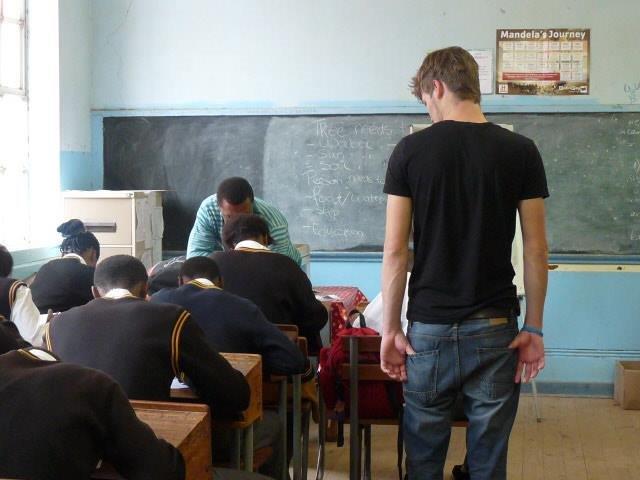


We’re not supposed to have a favourite discipline. But there’s something about the teachers-in-the-making who come through Ready4Life that makes us pay attention. Maybe it’s the way they notice things other people don’t — a child’s hesitation, a breakthrough, a buried talent.
Or maybe it’s because teaching interns walk into class carrying more than lesson plans — they carry presence, care, and a quiet kind of authority.
Wouldn’t it be amazing to discover that you’re that teacher? How incredible a difference could you make?
You have your whole career to refine your teaching — but why not start now, where it matters most? Many of the children in South Africa’s schools start their education careers at a serious disadvantage. Perhaps if you and they cross paths, you will both learn from each other.
Hopefully, you can see the potential beyond the structural handicaps they’re starting with. Many have never attended daycare. They enter Grade R or 1 without the basics — not just the ABCs or how to count, but also how to hold a pencil, how to sit still, or what a storybook is even *for*. Add to that serious challenges at home (poverty, trauma, neglect) and you’ve got a classroom full of kids who are brilliant, capable, and completely lost.
We won’t sugarcoat what you’re walking into, but what we’ve seen — again and again — is that people very much like you have tipped the scale. You could shift what school can be for kids who’ve been left behind.
If you come, you will support and be supported by older professionals.
Depending on your interests and requests from the community, you’ll likely work with:
You might be helping someone hold a pencil correctly for the first time. Or explaining fractions. Or running a reading circle under a tree. Or giving a child the only one-on-one attention they’ve had in months. Either way, the impact is real — and mutual.
Afrikaans, one of South Africa’s national languages, shares deep roots with Dutch. While it’s not identical, many words and sentence structures will feel surprisingly familiar — especially in classroom settings. This often gives Dutch and Flemish interns a head start in connecting with students and following along with local teachers.
And don’t underestimate the power of your “non-teaching” skills. Not every school will let you lean into these hobbies, and not every school will have the resources on hand, but the below are big hits here. Our schools thrive on creativity and connection just as much as they do on curriculum.
can enhance the learning experience by boosting student engagement, improving memory, and promoting emotional well-being. It can be used to teach various subjects, from language and math to history and science.
foster creativity, problem-solving, and fine motor skills, while also promoting self-expression and emotional regulation. Engaging in hands-on art projects allows students to explore concepts in a tactile and engaging way.
provide opportunities for students to develop critical thinking, problem-solving, and social skills. They can also connect literacy and numeracy to experince.
can strengthen responsibility, patience, and environmental awareness. It provides a real-world context for understanding ecosystems and sustainable food systems.